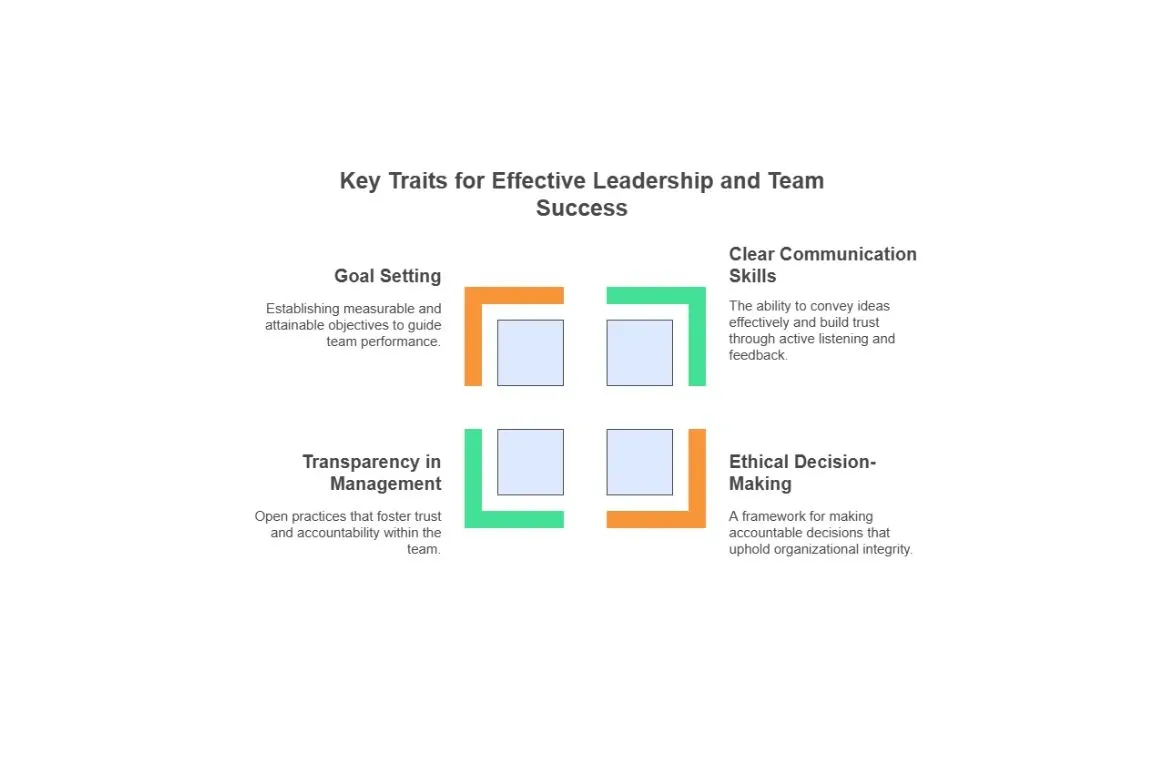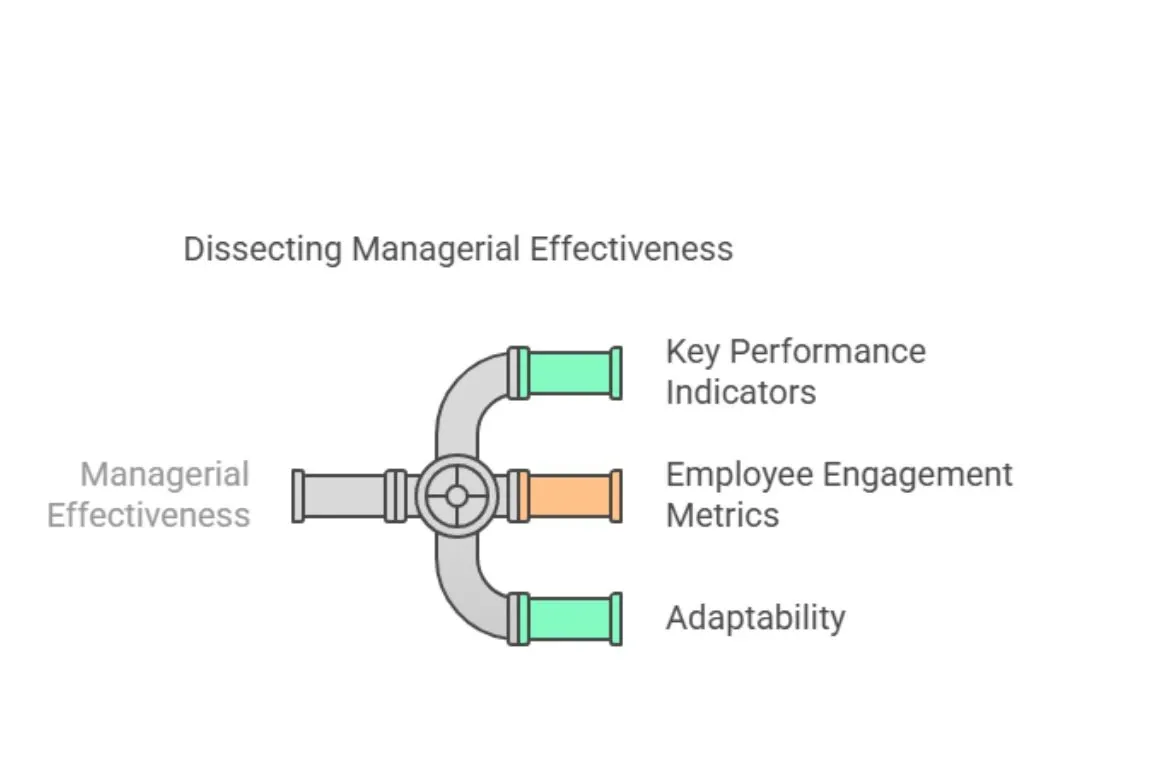Essential Qualities of a Good Manager

"Management is, above all, a practice where art, science, and craft meet." and Good managers play a vital role in curating that art and helping to deliver it, which ensures the organization’s success.
However, the real challenge comes from building management skills. Companies with highly engaged teams see higher productivity. Their profitability jumps compared to places where employees feel disconnected.
This article explains what makes great managers stand out. You'll learn how to measure a manager's effectiveness and build advanced managerial skills. Both new leaders and experienced professionals will find applicable information to help their teams succeed.
Essential Qualities of a Manager in an Organization.

Great managers stand out because they know how to lead differently in the workplace. They combine technical expertise with people skills to lead their teams effectively.
Clear communication skills
Communication is the heart and soul of every industry, relationship, or household. Clear communication helps build trust, and Good managers need to excel at both verbal and non-verbal communication.
The best communication strategies include:
- Active listening - Give team members undivided attention and show empathy
- Message clarity - Use straightforward language without unnecessary jargon
- Consistent feedback - Give regular input instead of annual reviews
- Controlled tone - Keep appropriate volume, projection, and word choice
Ethical decision-making framework
Making ethical decisions needs a well-laid-out approach. Managers who follow strong ethical frameworks show accountability and inspire their teams to do the same. This quality strengthens organizational integrity and builds stakeholder trust.
Ethical leadership reinforces company values. Managers who consistently show ethical behavior create environments where employees feel safe to raise concerns and suggest improvements.
Transparency in management practices
Open conversations between managers and employees about goals, objectives, and performance create workplace transparency. This openness builds trust, which acts as the foundation that drives accountability, results, and creativity.
Transparent managers also earn the trust of employees, customers, and stakeholders more easily. You can't always share everything, but managers who choose honest communication create safe spaces where teams feel valued and heard.
Setting clear Goals and Expectations
Managers must set measurable and attainable goals. This practice helps employees improve and strengthens the business.
- The SMART framework (Specific, Measurable, Attainable, Relevant, and Time-bound) helps set effective goals.
- Employees get clarity and see a clear path to achievement through this structure.
- Managers create better motivation by connecting individual goals to strategic business objectives.
- Clear expectations also create better frameworks for performance reviews.
This makes feedback conversations objective and constructive, which proves to be a vital quality for managers who want to build high-performing teams.
Measuring Managerial Effectiveness

Strong metrics that give objective insight into performance are essential to measure managerial effectiveness. A good evaluation system helps organizations identify strengths, fix weaknesses, and develop leadership capabilities that lead to business success.
Key performance indicators for managers
Great managers lead teams to deliver results that directly affect organizational outcomes. KPIs for managers work across three levels:
- Company-wise,
- Department-level, and
- Project-specific.
These measurements should match strategic business goals rather than serve as random checkpoints.
Manager-specific KPIs need to focus on both business outcomes and people management. A detailed approach that combines multiple measurement types captures the full scope of how managers affect the organization.
Employee engagement metrics
The manager accounts for 70% of the variance in team engagement. This makes engagement metrics vital indicators of managerial effectiveness. Teams with high engagement boost profitability, while disengaged employees can substantially affect the bottom line.
Adaptability in changing environment
This makes adaptability an essential quality for managers. Top managers show this through their ability to spot signs of change, try new approaches, and guide teams through transitions. We can measure adaptability by looking at how quickly managers implement change, their success with new initiatives, and their skill in leading teams through disruption. Adaptable managers perform better across changing business conditions. This quality has become more valuable as market and technological changes speed up.
Elevate through Advanced Management Skills
Professional development has changed dramatically. Continuous education now serves as an essential part of managerial excellence. The World Economic Forum estimates that 44% of core skills will change by 2027. This change demands widespread upskilling and reskilling.
Successful managers adopt learning agility as their primary approach. They focus on process-oriented methodology rather than content-focused learning skills. Managers should mix different learning formats that suit various learning styles. These formats include formal courses, informal learning opportunities, shadowing teammates, and coaching sessions. Organizations that maintain continuous learning cultures show better problem-solving skills, increased efficiency, and a stronger market position.
Management education faces a major hurdle in bridging theory and practice. Research shows a gap between theoretical knowledge and practical skills needed in real-life workplace scenarios. Work-based learning connects academic knowledge with professional practice effectively.
Conclusion
Management excellence is the lifeblood of organizational success, and good management practices drive business results. Natural leadership skills help, but structured learning through prestigious institutions can substantially speed up your professional growth.
Exceptional managers who want to stand out must inculcate the above-mentioned key qualities. However, to gain those qualities and thrive in your professional career, business management courses from prestigious institutions like IIMs can provide structured paths for experienced professionals. These courses give managers tools to turn theoretical concepts into workplace solutions. This knowledge helps them confidently direct complex business challenges.
Excellence in management needs dedication to ongoing learning, performance tracking, and practical knowledge application. Your team's success and your organization's future depend on your growth. Start your path toward becoming an outstanding manager today.
Frequently Asked Questions
Q1. What are the essential qualities of a good manager?
The essential qualities of a good manager include clear communication skills, practicing ethical decision-making, maintaining transparency, setting clear goals and expectations, and demonstrating adaptability in changing environments. These qualities foster trust, engagement, and productivity within teams.
Q2. How to be a good manager?
Good managers in today's workplace play a huge role. A manager is not only supposed to be good in his status but also character, as how he communicates with employees maintains an empathetic nature and focuses on leveraging transparency within and outside the organization to build trust and credibility.
Q3. What are the seven capabilities of a good manager?
- Good communication Skills
- Ethical decision-making capabilities
- Maintaining transparency and building trust
- Setting Clear Objectives and Goals
- Working on employee Metrics
- Adaptable to the changing environment.
- Managerial Capabilities to manage the good and bad conditions.
Q4. What are the essential skills of a manager?
Ethical decision-making skills and maintaining transparency drive accountability, results, and creativity; moreover, they need to set measurable and attainable goals, with more adaptability skills to accept the change and evolve with it.

TalentSprint
TalentSprint is a leading deep-tech education company. It partners with esteemed academic institutions and global corporations to offer advanced learning programs in deep-tech, management, and emerging technologies. Known for its high-impact programs co-created with think tanks and experts, TalentSprint blends academic expertise with practical industry experience.



